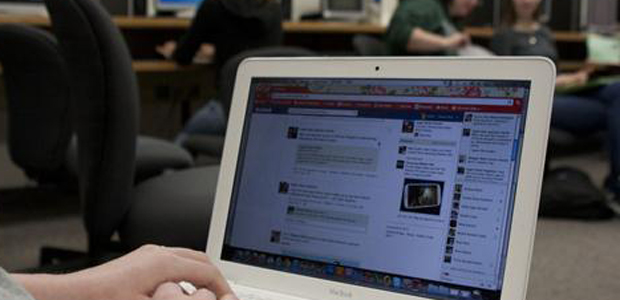Social Networking Advice for Teachers
Today, social networking of one kind or another is used by almost everyone with access to the internet. Whether it’s teachers, students or parents, the way we communicate with each other has changed so much within the last decade.
But with the growing use of Facebook and Twitter, teachers who maintain profiles on these websites face difficult dilemmas. It’s likely that you are asking yourself numerous questions. What should I do if I get a friend request from a student? Do I allow my pupils to follow my Twitter feed?
In June 2012, the Teaching Council, the organisation which regulates the profession in Ireland, released an updated Code of Conduct in response to these new challenges.
[gview file=”https://www.webwise.ie/wp-content/uploads/2014/06/code_of_conduct_2012_web-19June2012.pdf”]
While social networking has been used successfully by some schools for educational purposes, the Teaching Council issued advice for teachers about their personal use of such sites.
The updated Code of Conduct says teachers should not befriend students on Facebook or other social networking platforms.
Paragraph 3.7 on professional conduct also asks teachers to “ensure that any communication with pupils or students, colleagues, parents, school management and others is appropriate, including communication via electronic media, such as e-mail, texting and social networking sites”.
The Code of Conduct was updated due to growing concerns in schools over the rise in bullying and the growth of inappropriate messages and images being posted to social networking websites.
In May 2012, a number of students at one school were expelled after posting untrue allegations about a teacher on Facebook.
Ruairí Quinn, the Minister for Education, later said he found it difficult to envisage how it is appropriate for teachers or other school staff to communicate with their pupils through social media websites.
What Affect can Social Networking Have on Teachers?
As a teacher, you need to be aware of how social networking can affect your professional life.
Many of us use Facebook to share information, photos and messages. You should ask yourself if the latest batch of pictures from a recent holiday, or, a photo of you on a night out tagged by a friend, are suitable for students to see?
By befriending students, you can expose yourself to unwanted contact and potentially leave yourself open to allegations of inappropriate contact or conduct.
Webwise believes that you should treat all your postings as being public, because that is what social networking websites are: public forums.
Even if you aren’t friends with pupils, your tweets or Facebook posts can be viewed by anyone if you are not in control of your privacy settings.
Setting up good privacy controls on social networking sites is a really good idea.
Social Networking: Privacy Settings?
On Facebook, you can do a number of things to secure safe and private use. To change your privacy settings click on the downward arrow where your name appears in the top right hand corner of the screen.
As your profile and cover photos are always public, it’s very important that these are appropriate for anyone to see. Your name is also always public. Once someone knows your name they’ll be able to find you on Facebook. Some teachers have managed to avoid unwanted contact by changing the spelling of their names or using an Irish version of their name.
Another idea is to receive notifications when you are tagged in pictures and other posts. This will help you to stay in control of the information linked to you on Facebook.
To check you have applied your changes correctly, click the “view as” option to see how your profile appears to strangers.
Whatever setting you choose, remember that posting on social networks is public.
Always think before you post anything online because sharing information with others can mean that you lose control of it.
Remember the four characteristics of digital media:
- It’s searchable – anyone, anytime, anywhere can find it
- It’s forever – anyone (even the school principal) can find it today, tomorrow, or 30 years from now
- It’s copyable – once found it they can be copied, shared and changed
- It has a global invisible audience – even if your page is private, you can’t tell which friend shares your information. You have no control over what your friends do with it






